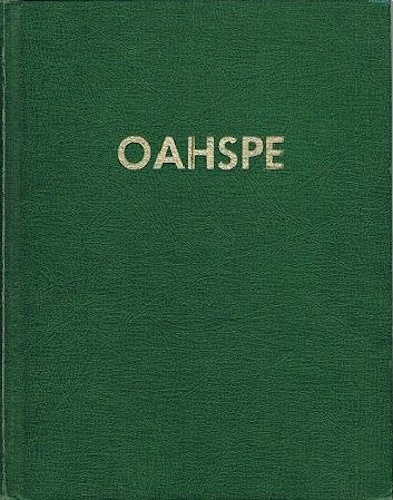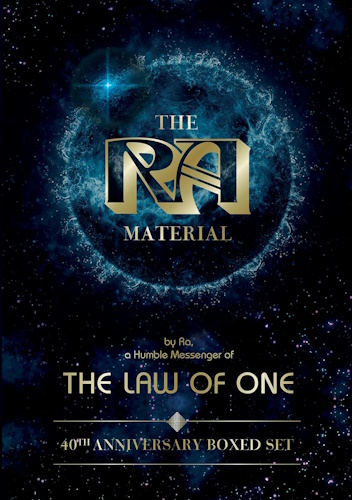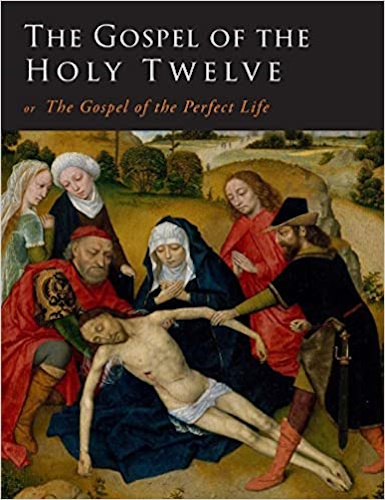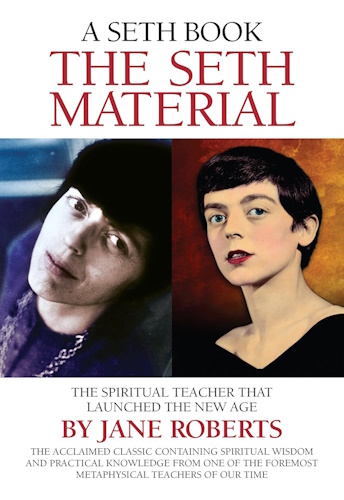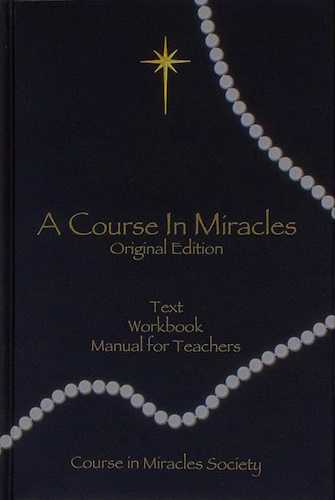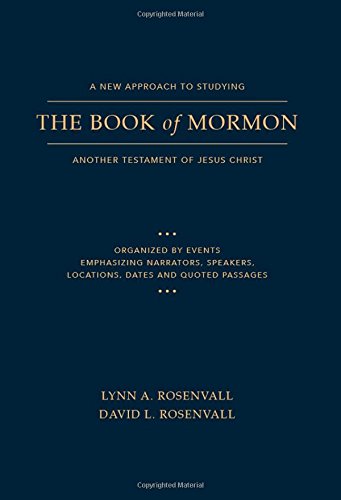
![]()
![]()
Book of God's Word
Chapter XII
p. 196b
1. I'HUA'MAZDA said unto Zarathustra, the All Pure: Three castes have I made; the first are the I'hins, sacred above all other people, because they keep my commandments; second, the I'huans, more powerful created I them than other people, because by them I will subdue the earth; and third, the druks, the evil people, who will not learn.
2. I'hua'Mazda said to Zarathustra, the All Pure: Remember the caste of men; keep thy blood in the place I created thee; nor shalt thou marry but in the caste I created thee.
3. I'hua Mazda said: A thousand castes I created among the I'huans: The king, the doctor, the magician, the priest, the farmer, the bearer of burdens, the messenger, swift-footed, and for all other occupations under the sun. Each and all within their own castes created I them; nor shall they marry but in the caste I created them.
4. Zarathustra responded to I'hua'Mazda, saying: I will keep thy commandments. Thy seventy commandments, and seven hundred and seven thousand.
5. I will preserve sacred the castes thou hast created, O I'hua'Mazda. And I will teach these holy truths to my children; to my servants, and unto all men.
6. Then I'hua'Mazda wrote all the commandments, as hereabove, and he stooped down and kissed the books, which were of stone and of cloth, saying: This is my holy book. Take it, O Zarathustra, thou All Pure, and go thou forth into all the world, teaching it, and explaining it.
7. Then Zarathustra, the All Pure, stooped down and kissed the book, saying: This is thy holy book, O I'hua'Mazda. I take it; and I will go into all the world, teaching it, and explaining it.
8. Thus was completed the first sacred, most holy book created for mortals. And Zarathustra rose up from his writing, tall and handsome, inquiring of I'hua'Mazda, saying: Whither shall I go first, O master?
9. Then answered I'hua'Mazda, creator of the Ormazdian law, the Zarathustrian law, saying:
10. Take my holy book, the Ormazdian law, the Zarathustrian law, first, to Asha, king of the I'huans, king of Oas, the City of the Sun. Him have I
p. 197b
prepared for thee and thy work since the day of his birth; since the day of thy birth, the day I spake to him in thy infancy.
11. Then went forth Zarathustra, strong in faith; and he came to Asha, the king. And the king said unto him: Thou hast tarried so long! Behold, I have cast the horoscope a hundred times, a thousand times. I have proved all the stars in heaven and named them, and made maps of them. And I have measured the power of one star over another star; and the powers of the stars on this world, and the powers of the sun and moon.
12. Yea, I have sent into the great cities of the east, to men of great learning; and to the south and north and west, to men of great learning. And then I sent to the kings of Jaffeth and of Shem; to Bow-gan-ghad; to Bing-thah; and to the great city of Huug-sin, where the great philosopher, Ah-tdong, liveth. And from all of these I have obtained great wisdom.
13. Hear me, then, O Zarathustra; I will speak to thee as if thy philosophy were true; but yet I believe it not: First, then, in all the stars there is nothing but lies; neither mattereth it if a man be born under this star or that star! I am old now and have observed thousands of men, yea, kings and queens, as to whether the stars rule over them, and I declare unto thee that the philosophy of the stars is nothing but lies. Yea, I have searched in mine own self, and I find I am often doing things contrary to my first intentions; but as to the cause, I know not.
14. This also have I discovered; there is one kind of causes that lie with individuals; and there is another kind of causes that lie with kings and kingdoms; but, yet, I perceive that each and every man is bound in his own channel by something stronger than himself. To find the cause of this, I have searched to the extent of all the stars in the firmament, but found not the truth.
15. Now I ask thee, in the name of thy Gods, if thou canst prove this matter to thy king?
16. Then answered Zarathustra, saying: Through my hand hath I'hua'Mazda written a most holy book, explaining many philosophies. This book have I brought unto thee, according to the commandments of my God; read thou it.
p. 198b
17. Then the king took the book and read it; and on the next day Zarathustra came again before the king. The king said: Thy book saith thus and so, but it proveth little. Thy God asserteth he hath done thus and so, and that he created thus and so. First of all, then, I know not if there be a God; second, if there be a God, I know not that he cometh to thee; and third, if he come to thee, and he be a just God, why he cometh not to me. And yet, after all this, for I doubt not thy wisdom will give sufficient answers to these questions, if it be true there are Gods unseen that rule over us, and spirits of the dead that come to us, persuading our souls unconsciously to ourselves, what mattereth it whether we try or not, to obtain truth and wisdom? Shall not all things be left to the spirits and Gods and Lords? Knowest thou not that the ancients believed these things?
18. And yet what of the ancients? Were they not in darkness, and addicted to horrid rites and ceremonies, and murders, and savagery? With our wisdom of disbelief in their religions, have we not attained to great cities and empires? Behold our thousands and tens of thousands of large cities! And do they not all have just reason to be proud? For there is not one city but that its walls and gates are adorned with thousands of the skeletons and skulls of serpents and lions, and the scalps of Druks. *
19. Then spake I'hua'Mazda to the king, speaking through the voice of Zarathustra, saying: Hear thy God, O king, and be considerate of my words. There are two births unto all men; the first is from the mother's womb, and the second is from the corporeal body. Prior to the first birth, the will and power of the child is nothing as to shaping its own destiny. But prior to the spiritual birth, which is the mortal death, the man hath much to do as to shaping his future destiny in the next world.
20. I declare unto thee, O king, that the corporeal man is, therefore, but half accomplished as to his real life. He is but half his own master; but half the controller of his place and behavior in the mortal world; nevertheless, he is the first half, the first chooser. Think not that spirits and Gods rule men as if they were slaves or toys; for another power also lieth
p. 199b
over man, which is neither spirits nor Gods nor stars, nor moon nor sun; but the corporeal surroundings that feed his earthly desires.
21. This is the Ormazdian law; not the corporeal stars, or corporeal earth, or corporeal moon, or corporeal man, ruleth over the spirit; but the subtle, the unseen to mortals, is the cause and ruler of all things.
22. Asha said: O that I could believe this! O that I knew this were true! O that the unseen worlds could be opened up to my understanding! For I perceive there is more power and virtue in thy philosophy than in my decrees. But touching thy book, O Zarathustra, answer thou me this: Who do the people in the world belong to, if not to me, the Sun King? Are not the people mine?
23. I'hua'Mazda said: All belong to Ormazd. Is it not here taught that man shall acknowledge obedience and worship to Ormazd only?
24. Asha said: I so perceive. Answer me this, O Zarathustra: To disown the king and the king's kings; will not this bring anarchy? For will not the rulers declare thy doctrine robbeth them of subjects? To which I'hua'Mazda suffered Zarathustra to reply. He said:
25. Is it not hard for a man not to have the privilege to choose his own master? Behold, they are now impressed into war; yea, thou keepest standing armies, trained in the labor of death. And this for the glory of the Sun Kingdom. Now hear me, O king, for I am now speaking on my own accord, and no God is speaking through me. And I declare unto thee, I have attained power to go in soul into the unseen worlds and behold with mine own eyes how it is with the souls of the dead. And I declare unto thee there are great torments for the wicked. I have seen them in hell, with walls of fire going up around them day and night; suffocating fires of brimstone, from which they cannot escape. And those slain in war, both those that are for the king, and those against the king, are equally cast into ceaseless torments, and even kings and queens with them, where all are wailing and gnashing their teeth, and cursing; and in their madness, doing wickedly unto others with all their might.
26. The king said: If it be that thou
p. 200b
canst go into heaven and hell, it must be true thou canst go to places on the corporeal earth in the same way. Prove thou this to me, and I will believe all thou hast said. Then Zarathustra said: Tell me whither I shall go, that I may convince thee, O king?
27. Ashar said: Go thou to the tower of the horoscope and find the words on the calendar.
28. Then spake I'hua'Mazda, saying: Have I not said, spirit cannot be proved but to spirit! Have I not said I am I'hua'Mazda; and Zarathustra hath said he is Zarathustra. But this thou canst not see. Behold, thou shalt witness now thine own craft. Here returneth Zarathustra.
29. Then spake Zarathustra, saying: Thou saidst to me: Go to the tower of the horoscope and find the words on the calendar. Lo, I have been there, and am already returned before thee. These, then, are the words of the calendar: To-ka, Seis, ctvai tnong, biang loo-sin-gooh wotchich; an porh, an oot, an dhi, an git.
30. Asha said: This is true. But how shall I not determine that thou gatheredest not the calendar from my heart? For I had the knowledge in my heart since sunrise. Then answered Zarathustra, saying: Try me once again; yea, thou shalt ask me for some toy of thine, and I will go fetch it.
31. Asha said: Behold, when I was a boy I let fall into the river betwixt the cliffs, at the outer wall, a golden case; go, thou, bring it.
32. Then spake I'hua'Mazda: Two conditions belong to all men, belief and unbelief. They are as seeds, planted in the soul of men whilst he is yet in his mother's womb; and when he is born forth into the world, they begin to grow within him. If man favor one only, it will grow at the expense of the other. Because of unbelief in man, he searched after truth and knowledge; but because of belief in man, he findeth happiness; but the latter may lead to stupidity, and the former to cruelty. It is a wise man, therefore, that keepeth these two talents evenly balanced.
33. Now even whilst I'hua'Mazda spake, the long-lost golden case fell at the king's feet, and it was yet dripping with water. The king examined it, and then exclaimed: This is true. And yet, if there be spirits and Gods, how
p. 201b
shall I determine which one brought this? May it not have been an evil spirit as well as a good one?
34. Then spake I'hua'Mazda, saying: Have I not said: I will show thee thine own craft in finding some other reason than the right one?
35. Asha said: O ye Gods, cannot ye heal me of my unbelief? My judgment showeth me I am diseased in my heart. O that my mother had been a believing woman before I was born! Tell me, O Zarathustra, or I'hua'Mazda, whoever thou art, for I perceive thou art not like any man under the sun, tell me what I shall do, that I may become thy servant?
36. I'hua'Mazda said: On the morrow at sunrise I will come to thee, with Zarathustra, and I will tell thee many things.
Footnotes
198b:* Aborigines
-
Urantia Book, 44:0.11 - The Celestial Artisans
Never in your long ascendancy will you lose the power to recognize your associates of former existences. Always, as you ascend inward in the scale of life, will you retain the ability to recognize and fraternize with the fellow beings of your previous and lower levels of experience. Each new translation or resurrection will add one more group of spirit beings to your vision range without in the least depriving you of the ability to recognize your friends and fellows of former estates.
-
Princess Bride 1987 Wallace Shawn (Vizzini) and Mandy Patinkin (Inigo Montoya)
Vizzini: HE DIDN'T FALL? INCONCEIVABLE.
Inigo Montoya: You keep using that word. I do not think it means what you think it means. -
Urantia Book, 117:4.14 - The Finite God
And here is mystery: The more closely man approaches God through love, the greater the reality -- actuality -- of that man. The more man withdraws from God, the more nearly he approaches nonreality -- cessation of existence. When man consecrates his will to the doing of the Father's will, when man gives God all that he has, then does God make that man more than he is.
-
Urantia Book, 167:7.4 - The Talk About Angels
"And do you not remember that I said to you once before that, if you had your spiritual eyes anointed, you would then see the heavens opened and behold the angels of God ascending and descending? It is by the ministry of the angels that one world may be kept in touch with other worlds, for have I not repeatedly told you that I have other sheep not of this fold?"
-
Urantia Book, Foreword - 0:12.12 - The Trinities
But we know that there dwells within the human mind a fragment of God, and that there sojourns with the human soul the Spirit of Truth; and we further know that these spirit forces conspire to enable material man to grasp the reality of spiritual values and to comprehend the philosophy of universe meanings. But even more certainly we know that these spirits of the Divine Presence are able to assist man in the spiritual appropriation of all truth contributory to the enhancement of the ever-progressing reality of personal religious experience—God-consciousness.
-
Urantia Book, 1:4.3 - The Mystery Of God
When you are through down here, when your course has been run in temporary form on earth, when your trial trip in the flesh is finished, when the dust that composes the mortal tabernacle "returns to the earth whence it came"; then, it is revealed, the indwelling "Spirit shall return to God who gave it." There sojourns within each moral being of this planet a fragment of God, a part and parcel of divinity. It is not yet yours by right of possession, but it is designedly intended to be one with you if you survive the mortal existence.
-
Urantia Book, 1:4.1 - The Mystery Of God
And the greatest of all the unfathomable mysteries of God is the phenomenon of the divine indwelling of mortal minds. The manner in which the Universal Father sojourns with the creatures of time is the most profound of all universe mysteries; the divine presence in the mind of man is the mystery of mysteries.
-
Urantia Book, 1:4.6 - The Mystery Of God
To every spirit being and to every mortal creature in every sphere and on every world of the universe of universes, the Universal Father reveals all of his gracious and divine self that can be discerned or comprehended by such spirit beings and by such mortal creatures. God is no respecter of persons, either spiritual or material. The divine presence which any child of the universe enjoys at any given moment is limited only by the capacity of such a creature to receive and to discern the spirit actualities of the supermaterial world.
-
Urantia Book, 11:0.1 - The Eternal Isle Of Paradise
Paradise is the eternal center of the universe of universes and the abiding place of the Universal Father, the Eternal Son, the Infinite Spirit, and their divine co-ordinates and associates. This central Isle is the most gigantic organized body of cosmic reality in all the master universe. Paradise is a material sphere as well as a spiritual abode. All of the intelligent creation of the Universal Father is domiciled on material abodes; hence must the absolute controlling center also be material, literal. And again it should be reiterated that spirit things and spiritual beings are real.
-
Urantia Book, 50:6.4 - Planetary Culture
Culture presupposes quality of mind; culture cannot be enhanced unless mind is elevated. Superior intellect will seek a noble culture and find some way to attain such a goal. Inferior minds will spurn the highest culture even when presented to them ready-made.
-
Urantia Book, 54:1.6 - True And False Liberty
True liberty is the associate of genuine self-respect; false liberty is the consort of self-admiration. True liberty is the fruit of self-control; false liberty, the assumption of self-assertion. Self-control leads to altruistic service; self-admiration tends towards the exploitation of others for the selfish aggrandizement of such a mistaken individual as is willing to sacrifice righteous attainment for the sake of possessing unjust power over his fellow beings.
-
Urantia Book, 54:1.9 - True And False Liberty
How dare the self-willed creature encroach upon the rights of his fellows in the name of personal liberty when the Supreme Rulers of the universe stand back in merciful respect for these prerogatives of will and potentials of personality! No being, in the exercise of his supposed personal liberty, has a right to deprive any other being of those privileges of existence conferred by the Creators and duly respected by all their loyal associates, subordinates, and subjects.
-
Urantia Book, 54:1.8 - True And False Liberty
There is no error greater than that species of self-deception which leads intelligent beings to crave the exercise of power over other beings for the purpose of depriving these persons of their natural liberties. The golden rule of human fairness cries out against all such fraud, unfairness, selfishness, and unrighteousness.
